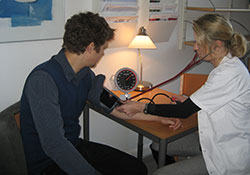Policy

WHO
WHO’s approach to cancer has 4 pillars: prevention, early detection, diagnosis and treatment and palliative care. A comprehensive cancer strategy addresses all these areas acknowledging certain facts.
- At least one third of cancer cases are preventable through reducing tobacco and alcohol use, moderating diet and immunizing against human papillomavirus and viral hepatitis B.
- Early detection and prompt treatment can reduce cancer mortality by a further one third.
- Effective techniques are sufficiently well established to permit comprehensive palliative care for the remaining more advanced cases.
WHO has consolidated tools for countries in a framework known as the national cancer control programme, which focuses government attention and services on all facets of the fight against cancer. This public health programme is designed to reduce cancer incidence and mortality, and to improve cancer patients’ quality of life, through the systematic and equitable implementation of evidence-based strategies for prevention, early detection, diagnosis, treatment and palliation, making the best use of available resources.
Cancer control should be part of a more comprehensive strategy for the prevention and control of noncommunicable diseases. The strategy should simultaneously promote population-level health promotion and disease prevention, and actively target groups and individuals at high risk, while maximizing population coverage with effective treatment and care. Tackling the wider determinants of health and reducing inequalities within and between countries has the potential to contribute to major improvements. In collaboration with partners and Member States, WHO has developed comprehensive strategies and guidelines, both at global and regional levels, to tackle the risk factors that lead to cancer and other noncommunicable diseases.



